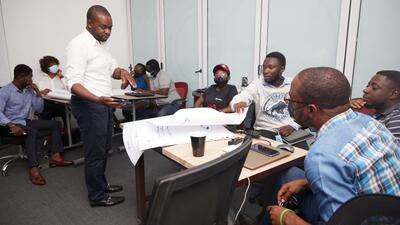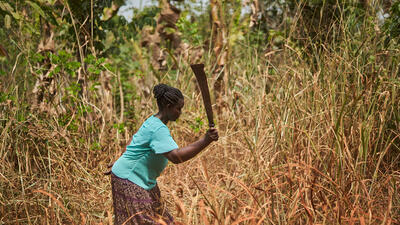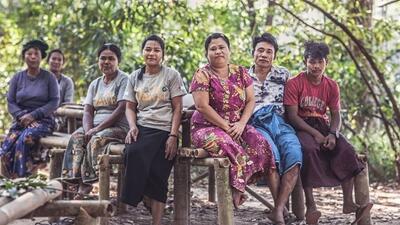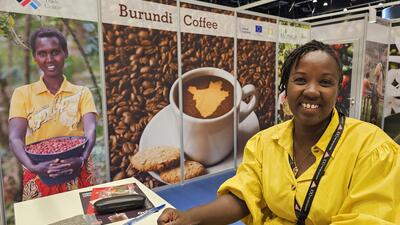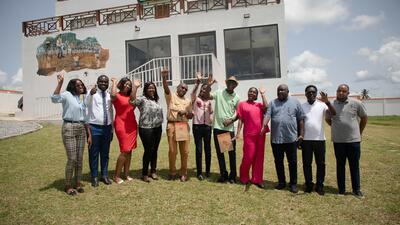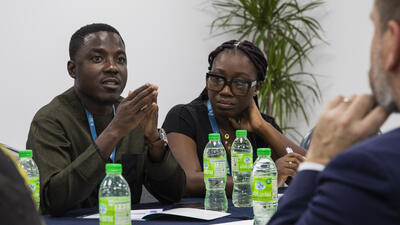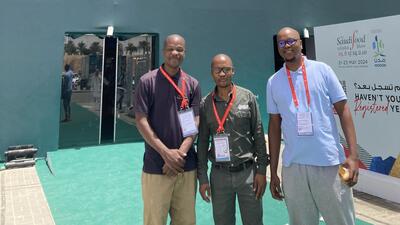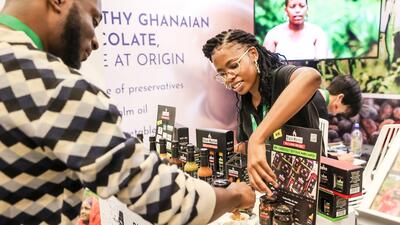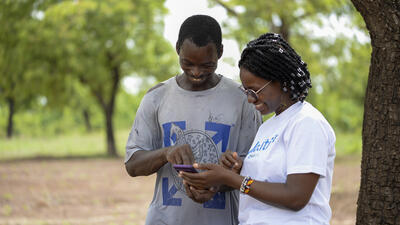
How to create synergy among Ghana’s tech hubs
Ghana has one of the largest networks of tech hubs on the continent, providing vital support to start-ups and entrepreneurs. The country has so many tech hubs that it’s hard for them to all know each other, much less know what services they’re all providing.
That was the goal of the ecosystem mapping report, facilitated by ITC’s Netherlands Trust Fund V Ghana Tech.
For Frederick Phillips, an agribusiness specialist at Kosmos Innovation Center in Accra, the report will help him find ways to support entrepreneurs who need to solve difficult, and sometimes unusual problems.
Like how to get fly larvae to farms where chickens can eat them, in a new kind of animal feed that’s also creating jobs.
“There's a science and technology around that,” said Phillips.
The agri(tech) start-ups need equipment to raise the black soldier flies and harvest the larvae. They need to find and deliver to farmers who want to use their feed. They need permits and certification to comply with health regulations.
“But how do you pick the best technology out there?” Phillips said. “You're trying to identify other entrepreneurs who have done this in the past, and to improve based on lessons learned.”
That information is now easier to find with the mapping report, completed in collaboration with Ghana Tech Lab and a host of other collaborators.
“The mapping focused on a network analysis, and the gaps that are existing, so we can practically examine how to address them,” said Mohammed Suhuyini Zakaria, a research associate at the Ghana Tech Lab in Accra. He leads government and policy relations, and helped launch the mapping through a workshop in May.
This mapping and took a deep dive into agritech -- looking at ways that even small farmers can use technology to improve their businesses.
That poses particular challenges. Accra and other main cities are well-connected to the Internet, and larger businesses have the resources to use technology in their work. But farmers in many regions don’t have smartphones or online access, said Zakaria, so developers have to think outside of the box.
The mapping exercise is meant as a first step to helping the hubs collaborate amongst themselves, said Julia Zietemann, ITC’s Associate Programme Officer for Institutions & Ecosystems.
That could mean coordinating training programmes, creating partnerships with universities, or helping startups find investors.
“There are a lot of hubs actively supporting start-ups in the different regions of Ghana. However, most of them focus on the initial stages of start-up support, showing a lack of differentiation
and coordination of the service portfolio,” said Zietemann. “For the institutions which attended the workshop, they were mostly meeting for the first time, or were happy to finally meet face-to-face and intensify previous contacts.”
“The hubs themselves can really focus on creating a network which is active and has regular exchanges,” she added.
The ultimate goal is to help more tech entrepreneurs get their products to market. For that, the hubs that are training and incubating these businesses need to think about diversifying their funding.
Before Covid, some rented out space as hot desks or event venues. Now that pandemic restrictions have ended, the hubs need to find ways of luring entrepreneurs back into their co-work spaces.
The next workshop will focus on creating practical plans to implement the report’s recommendations.
“The most useful outcome is that all this information is in one place and made a way to find all these potential partners simpler,” said Phillips. “Now we know where everyone is and what they are doing. And that helps to build a community that is an ecosystem that becomes dependent upon each other.”
The Netherlands Trust Fund V (NTF) (July 2021 – June 2025) is based on a partnership between the Ministry of Foreign Affairs of The Netherlands and the International Trade Centre. The programme supports MSMEs in the digital technologies and agribusiness sectors. Its ambition is two-fold: to contribute to an inclusive and sustainable transformation of food systems, partially through digital solutions, and drive the internationalisation of tech start-ups and export of IT&BPO companies in selected Sub-Saharan African countries.





